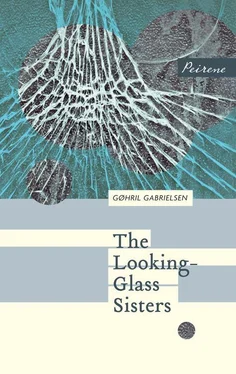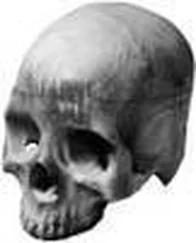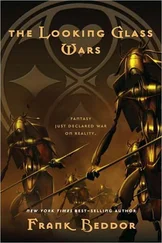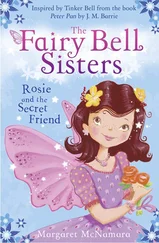I dreamt I lay trapped under the ruins of a collapsed house, I was half-suffocated and close to death, under a huge pile of stones but with an air pocket close to my nose. And I wasn’t alone, there was someone else in the ruins, just as half-dead as I was. When the house collapsed, we had managed to get hold of each other’s hands, we lay separate and hidden by the rubble, but our fingers were intertwined. I didn’t know who the other person was, but I had a feeling that it was a woman, and that there was something familiar and close in the contact between hands and skin.
We held on to each other for a long time and signalled via squeezing and tweaking that we were still alive — a reassurance and encouragement for both of us.
But after a while the other person’s squeezes grew slacker, colder, the hand responded more weakly and less frequently to my squeezes, and finally stopped altogether. I tried to stretch the other person’s fingers, make large movements with my hand to get a reaction, but stones and the position of my arm made it impossible. Finally I had to accept that the other person was dead and that I was completely alone in the ruins of the collapsed house.
I cried, and in a way that was a good thing because the tears sealed me off, I could abandon myself to grieving for what I had lost, and the fact that I was lost to life. I cried until everything went pale, almost white, and it was then that the strangest thing in the dream happened. The rubble was lifted off my body and daylight streamed towards me. Blinded, happy, I held my hands in front of my eyes; right above me I could make out the contours of a figure, a man, and when he bent down and examined my injuries, I felt even happier, for I was sure that we knew each other — I just didn’t know where from or how. I made a sign that I wanted to be lifted up, but he didn’t touch me, only shrugged his shoulders resignedly, and he then left me in the ruins with quick, light steps. Just before he disappeared over the horizon, he turned round and waved, and it was then that I woke up.
If only I understood what the dream meant, if only I knew who he was, why he didn’t want to take me with him. These are the questions I am struggling with when evening comes and Ragna is standing at the foot of my bed.
She stares at me sceptically.
‘What’s up with you? Have you seen a ghost?’
I don’t answer, but blink several times to try and escape from the hypnotizing images. I shake my head uncomprehendingly, look a bit worried, lift the duvet. And then I understand, I can feel it in my whole body — the pain in my back and thighs after having lain lopsidedly and in an arch over the chamber pot. It’s a relief when Ragna removes the po, but at the same time it causes me violent pain as my back sinks down into the mattress. I’ve been lying there for several hours, at least.
The pot sloshes and splashes, Ragna makes a face and holds her nose.
‘What a stench,’ she says, and quickly spreads the duvet out over me.
*
The days come and go. From my inert life on the pillows I have plenty of time to study the married couple’s rhythm of daily activities.
Every morning starts like this: Ragna puts the coffee on. As soon as it’s ready, Johan comes to the kitchen table and they drink cup after cup together while they natter away and laugh. And after having drunk a whole pot, they boil another one that they also immediately drink. Along with these cups of pitch-black gritty coffee they eat large slices of bread that Ragna has baked. Or rather, Ragna prods a few crumbs into her mouth, while Johan wolfs down whatever is going from her full plate. After that they sometimes go back to bed, and when they get up an hour later, it’s more coffee and perhaps some card games and patience. This is the basic structure of their everyday life, everything else is a variation, but the variations also have a familiar and predictable pattern: a motorbike ride somewhere or other, shopping trips to the village (when Ragna is with him, these always include a visit to a café), or surprises, such as a fishing trip to one of the lakes not far from home. When they come back, it’s time for coffee again. Maybe they will also listen to the radio; that can lead to a discussion and even an argument. But after a spot of reconciliatory activity, in either the bedroom or the bathroom, everything’s fine again. Sometimes they can spend the entire morning in bed, and they can stay in the bathroom for hours. But those are the rare exceptions.
Of course they take a certain amount of time mending things, clearing up and doing housework. At regular intervals Ragna does the washing, while Johan chops wood. Ragna bakes and irons, while Johan fixes the vehicles and repairs things round the house. Just before he’s finished, he will step into the kitchen and rub his hands, then give an affected shiver.
‘Ah, a little coffee wouldn’t be a bad idea, I think,’ he might say, and so he will take a well-earned coffee break.
Naturally, Johan and Ragna’s chores are seasonal. Now it’s spring and there’s little to be done. In autumn they will trawl the moors for cloudberries, will fish and hunt and smoke and mince, and then sell most of what they have gathered to other people and various outlets. But if I have understood their marital conspiracy right, they take plenty of breaks and have lots of cosy times together, completely oblivious of my presence and my unsatisfied needs.
*
‘Ragna!’ I call out one afternoon, my voice perhaps unnecessarily sharp, but it’s because I feel up to things and much better. ‘Ragna!’ I call out again. ‘Have you remembered what I asked you about?’
Everything goes quiet in the kitchen.
‘What’s that, then?’ comes the piercing reply after a while.
‘Books,’ I say sternly, my voice out of control. ‘Why didn’t you bring any home last time?’
I can hear them moving around uneasily in there.
‘Books?’
‘Yes, books. At the library. It’s ages since you were last there.’
‘What a bloody fusspot,’ Johan says quietly, as if to himself.
‘It’s really too bad.’
‘You’ve been ill,’ is Ragna’s immediate reply. ‘You ought to be glad you’ve recovered as well has you have!’
‘Yes, all right. But now I’m much better. And I need something to read.’
‘Books! Books! I’ve spent every single moment of my free time on you. And all you can do is complain that I don’t fetch books for you?’
Ragna bangs a glass down hard on the table. I hear her get up and rattle the cups around in the sink.
‘All you think about is Johan and yourself.’
‘Don’t you bring Johan into this. He’s got more than enough to lug around on his trips to the village. It’s not exactly nothing, all you put away. And on top of that you want him to carry books for you!’
‘Don’t be stupid, Ragna. You know what I mean.’
‘What you mean is just rubbish. And let me tell you one thing.’ Ragna bangs her hand down on the draining board by the sink: the cups clatter, there’s rattling in the cupboards. ‘Not a book is going to enter this house until you’re more grateful for all the things I do for you!’
Ragna lets out a pretend sob. She even snuffles.
‘The bloody harridan,’ Johan says under his breath, then gets up and walks over to comfort her.
*
Johan is sitting in my chair. And it’s my place at the kitchen table he takes all day long. He’s taken over my time in the toilet, and steals much of the attention and care I otherwise had from Ragna.
Johan has got things as he wants them. I have been banished to my bedroom, thrown out and reduced to a gaping hole that has to be fed and emptied, while my head’s hunger, my need to read and write, is ignored and ridiculed.
Читать дальше











